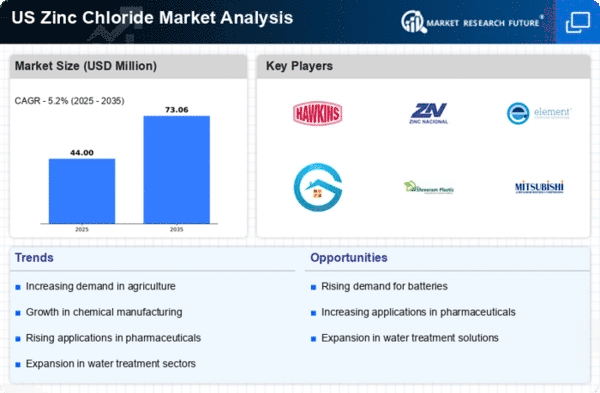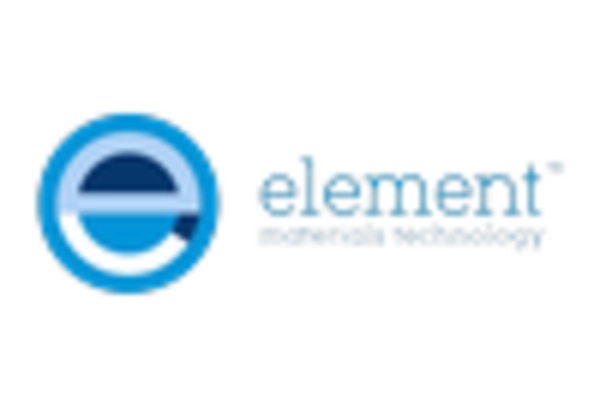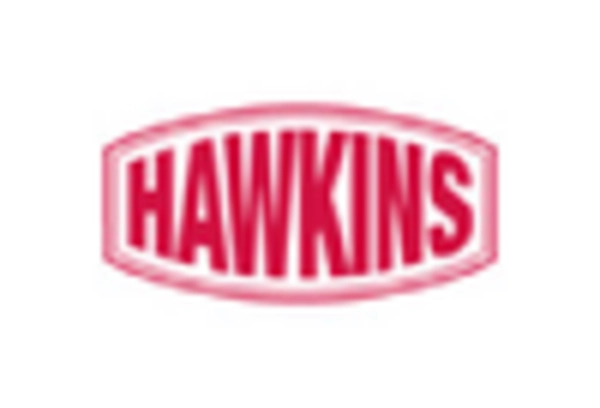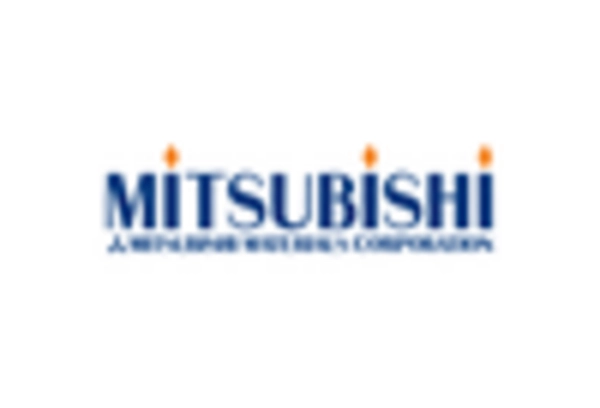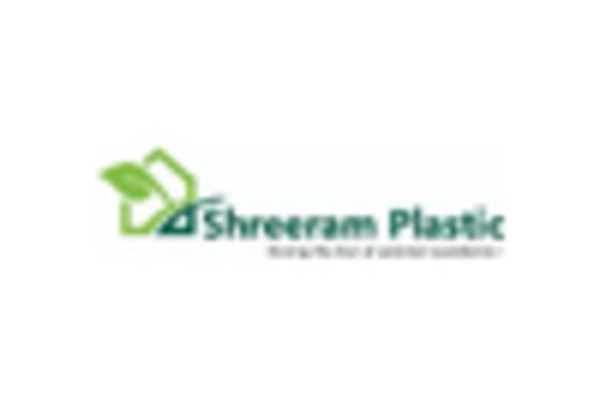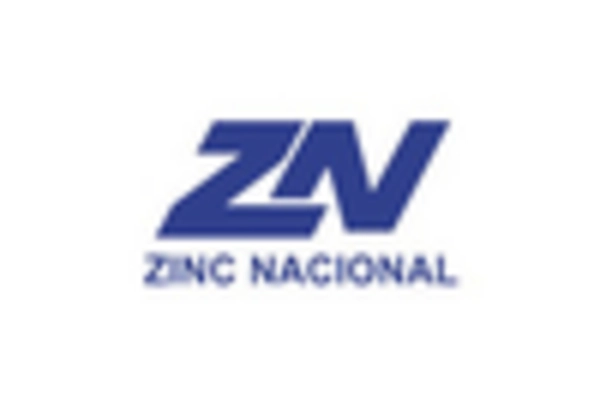The zinc chloride market exhibits a competitive landscape characterized by a blend of established players and emerging companies, driven by increasing demand across various applications such as chemical manufacturing, pharmaceuticals, and agriculture. Key growth drivers include the rising need for effective water treatment solutions and the expanding use of zinc chloride in the production of batteries and electronics. Major companies like Hawkins Inc (US), American Elements (US), and Zinc Nacional S.A. (MX) are strategically positioned to leverage these trends, focusing on innovation, regional expansion, and sustainability initiatives. Their collective strategies not only enhance their market presence but also shape the competitive dynamics by fostering a culture of continuous improvement and adaptation to market needs.In terms of business tactics, companies are increasingly localizing manufacturing to reduce lead times and optimize supply chains. The market structure appears moderately fragmented, with several players vying for market share. This fragmentation allows for a diverse range of products and services, yet the influence of key players remains substantial, as they set benchmarks for quality and innovation that smaller companies often strive to meet.
In October Hawkins Inc (US) announced the expansion of its production facility in Minnesota, aimed at increasing its output capacity by 30%. This strategic move is likely to enhance their ability to meet the growing demand for zinc chloride in the North American market, positioning them as a more formidable competitor. The expansion not only signifies a commitment to growth but also reflects an understanding of the need for localized production to ensure supply chain resilience.
In September American Elements (US) launched a new line of high-purity zinc chloride products tailored for the electronics industry. This initiative underscores their focus on innovation and specialization, catering to the specific needs of high-tech applications. By diversifying their product offerings, American Elements is likely to capture a larger share of the market, particularly as the demand for advanced materials in electronics continues to rise.
In August Zinc Nacional S.A. (MX) entered into a strategic partnership with a leading water treatment company to develop eco-friendly solutions utilizing zinc chloride. This collaboration not only enhances their product portfolio but also aligns with the growing emphasis on sustainability within the industry. Such partnerships may prove crucial in differentiating their offerings in a competitive market increasingly focused on environmental impact.
As of November current competitive trends indicate a shift towards digitalization, sustainability, and the integration of AI technologies in production processes. Strategic alliances are becoming more prevalent, allowing companies to pool resources and expertise to innovate more effectively. The competitive landscape is likely to evolve from traditional price-based competition to a focus on technological advancement, product differentiation, and supply chain reliability, suggesting that companies that prioritize innovation and sustainability will be better positioned for future success.


